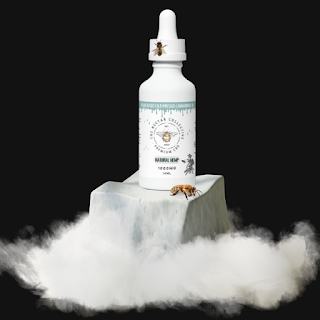Pros, cons, and treatments for insomnia and cannabidiol
Just what is CBD, Exactly?
CBD is another major cannabinoid isolated from cannabis, along with THC. As a rule, CBD products have negligible to no tetrahydrocannabinol (THC), the chemical responsible for the "high" associated with cannabis. CBD, in contrast to THC, has no psychoactive effects.
The diversity of CBD products available, and the rise in their popularity, includes:
- Oil vaporizer liquid in the form of oral sprays
- Liquids in suspensions
- Pills or capsules
- Edibles that are powdered, such candy and teas
- Topical medicines, including cosmetics, gels, and ointments,
- Communal smoking
- CBD's safety, efficacy, and other potential applications, such as in the treatment of insomnia, continue to be hotly debated amongst experts.
CBD has shown some promise as a sleep aid.
Cannabidiol, or CBD for short, is one of the main cannabinoids found in cannabis. Cannabinoids cooperate with the endogenous cannabinoid system to maintain homeostasis, or internal stability.
Unlike its THC sibling, Cbd UK has no intoxicating effects. Instead, it has many medical uses, such as reducing epileptic seizures and relieving pain associated with a number of different medical issues.
There's some evidence, both scientific and anecdotal, that CBD can help you get a better night's rest. Everything you wanted to know about the benefits of CBD oil for sleep is right here.
CBD Adverse Effects and Safety
Taking CBD to help you sleep is generally safe, though more research is needed to determine the long-term effects on health.
• Dry mouth, diarrhoea, tiredness, loss of appetite, and low blood pressure are some of the mild adverse effects that have been linked to CBD use.
• CBD, like all drugs and supplements, is metabolised by the liver. Therefore, studies into the potential effects of CBD on the liver continue. Epidiolex, a medicine used to treat seizures, has been linked in some trials to liver toxicity, though more studies are needed to confirm this.
• There is a lot we don't know about CBD because the cannabinoid hasn't been explored extensively.
Drug-to-drug interactions: Because of the lack of research into the safety of taking CBD with OTC drugs, it's best to let your doctor know if you're considering using CBD.
Research is ongoing to determine the substance's safety for the elderly, children, and pregnant women. Various goods on the market make exaggerated or misleading health claims, such as being the best CBD oil for anxiety for sleep or curing a variety of other ills.
There is a lack of transparency in regards to the efficacy and safety of CBD products on the market because the government does not oversee their production. It's possible that some of them have been tainted with dangerous chemicals like pesticides or metals.Despite the fact that much about CBD is still unknown, there have been no instances of overdose or other severe difficulties, leading some researchers to believe it may be safer than other medications used to treat sleep and other health conditions.
Anxiety
Cbd UK has been shown to reduce anxiety in at least 60% of users. Initial research suggests that CBD may have anxiety-reducing effects. Anxiety relief via cannabinoid receptors activated by CBD oil. CBD's long-term effects on anxiety disorders, as well as the optimal dosage, require more study. Nonetheless, evidence from a number of studies suggests that CBD may be helpful in treating the ailment.
The use of CBD oil for anxiety may help some people get a better night's rest. Anxiety over falling asleep can make it harder for people who already have difficulties sleeping to fall asleep, and vice versa. It is unclear if the calming effects of CBD on anxiety are additive or if people just sleep better when their anxiety levels are lower.


Comments
Post a Comment